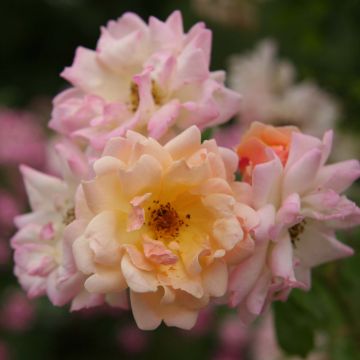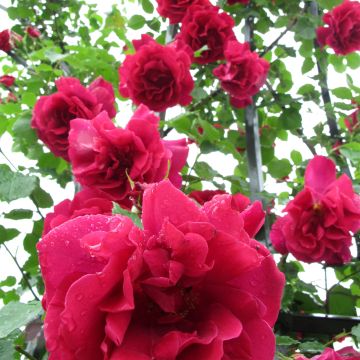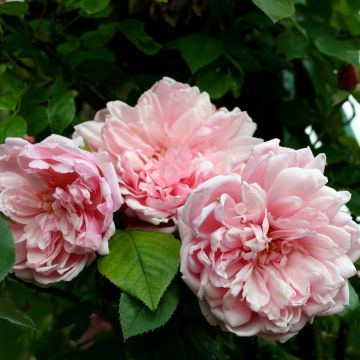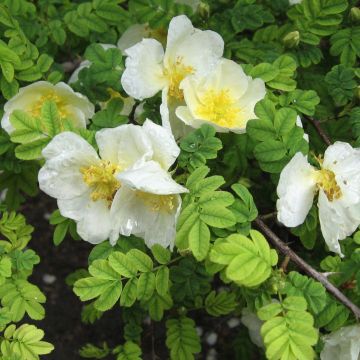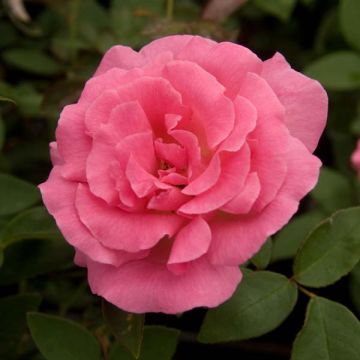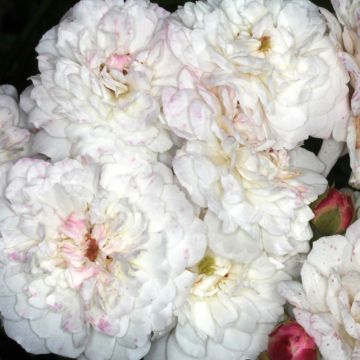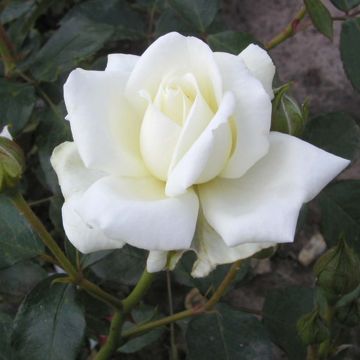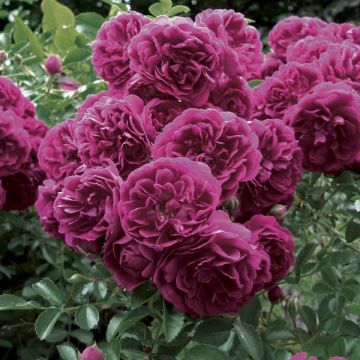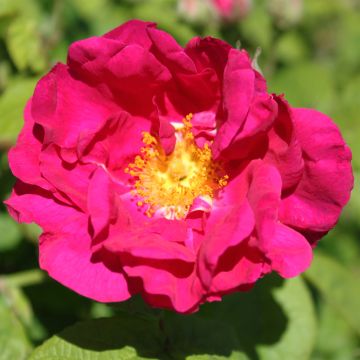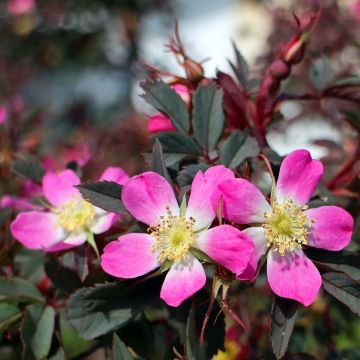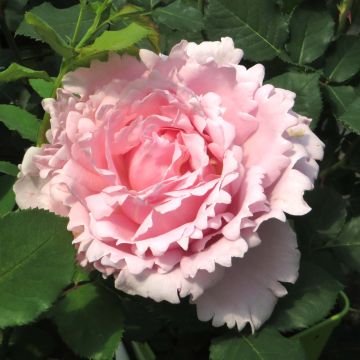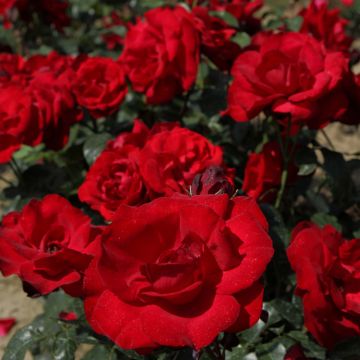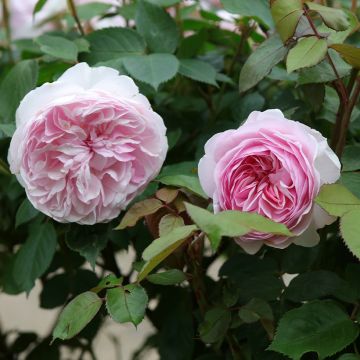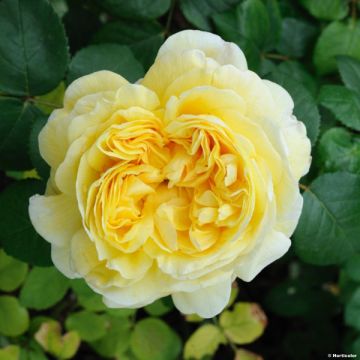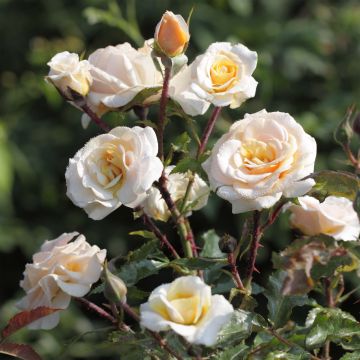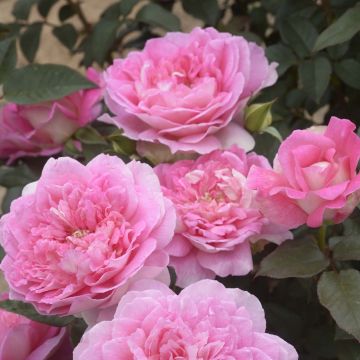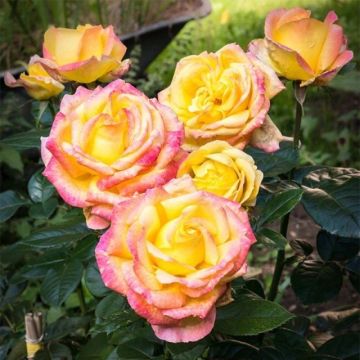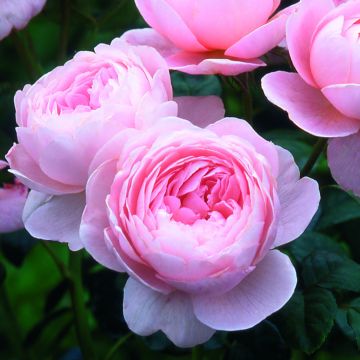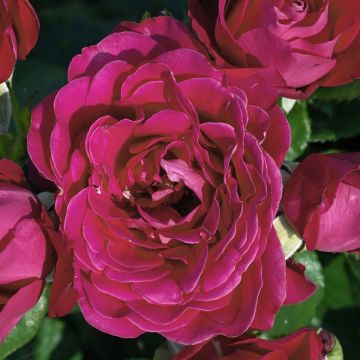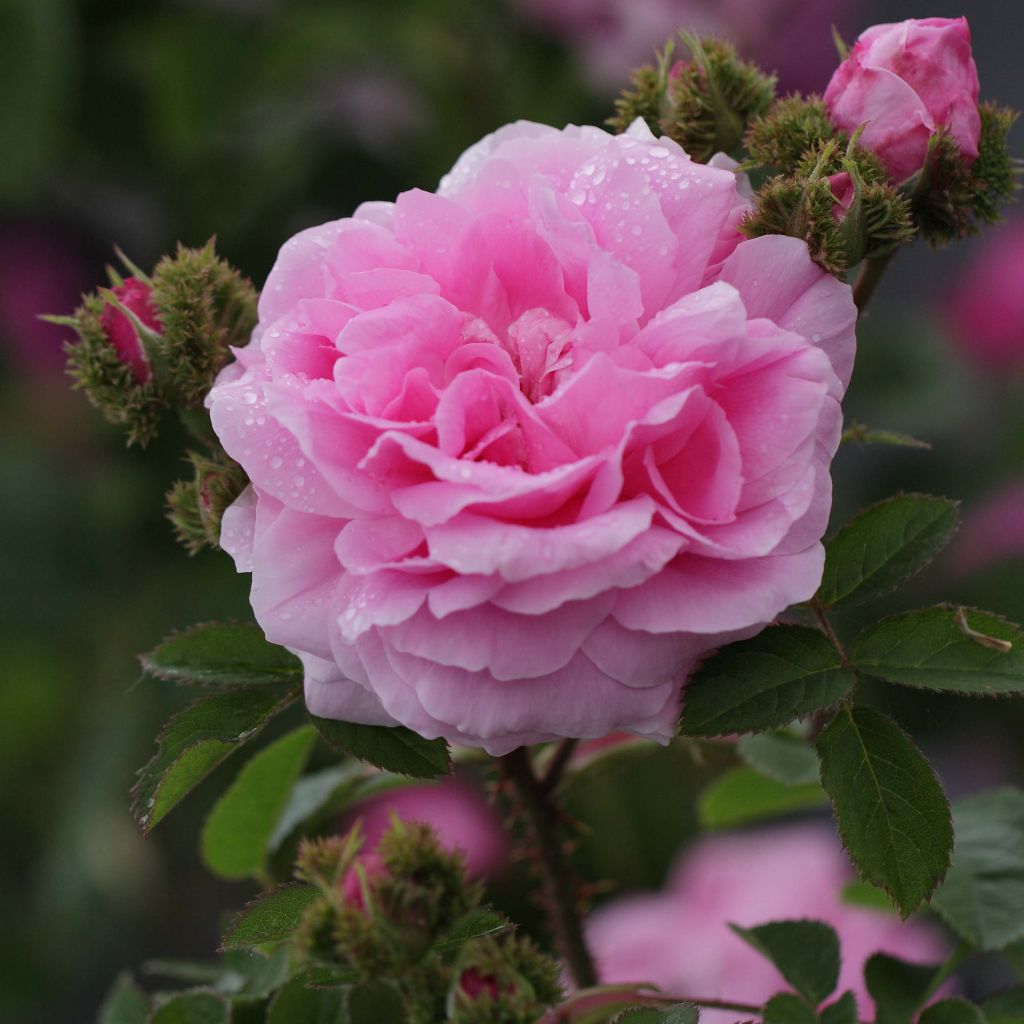

Rosa centifolia Cristata - Crested Moss Rose
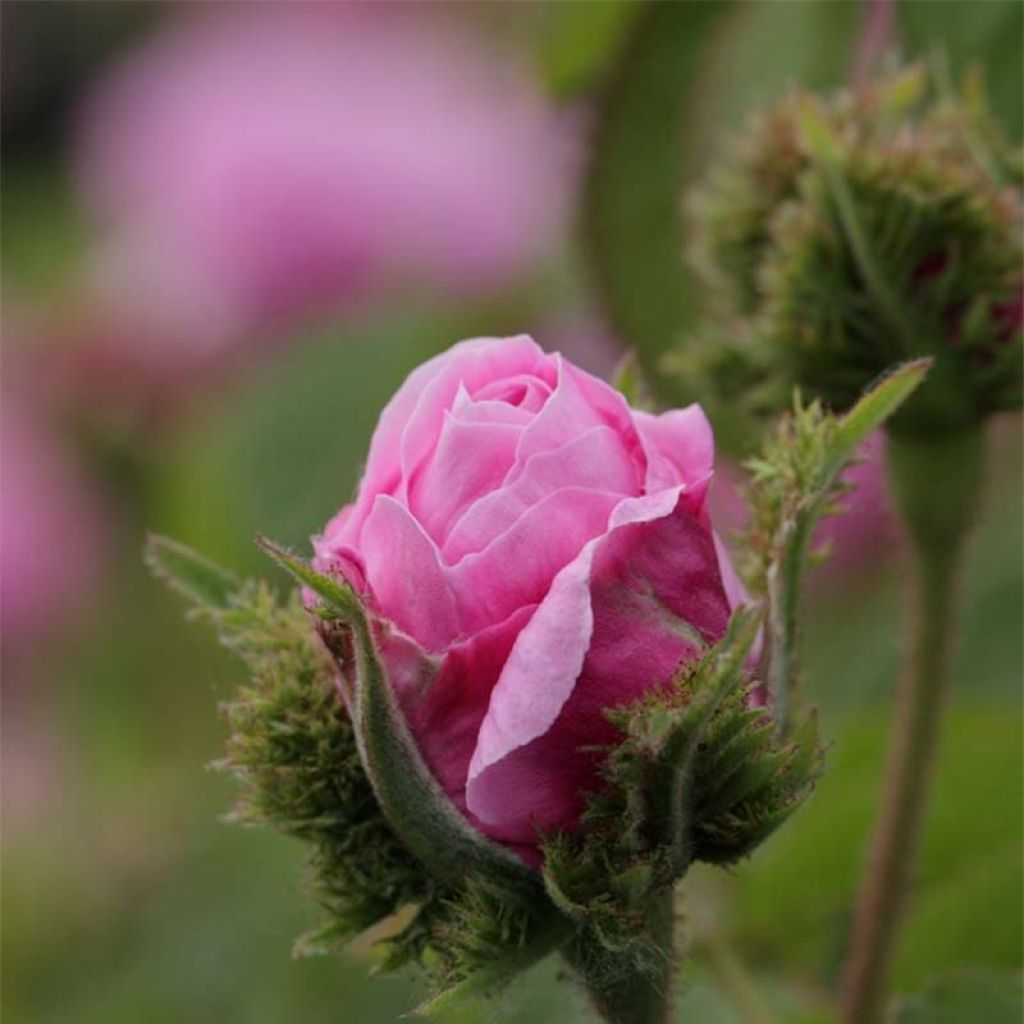

Rosa centifolia Cristata - Crested Moss Rose
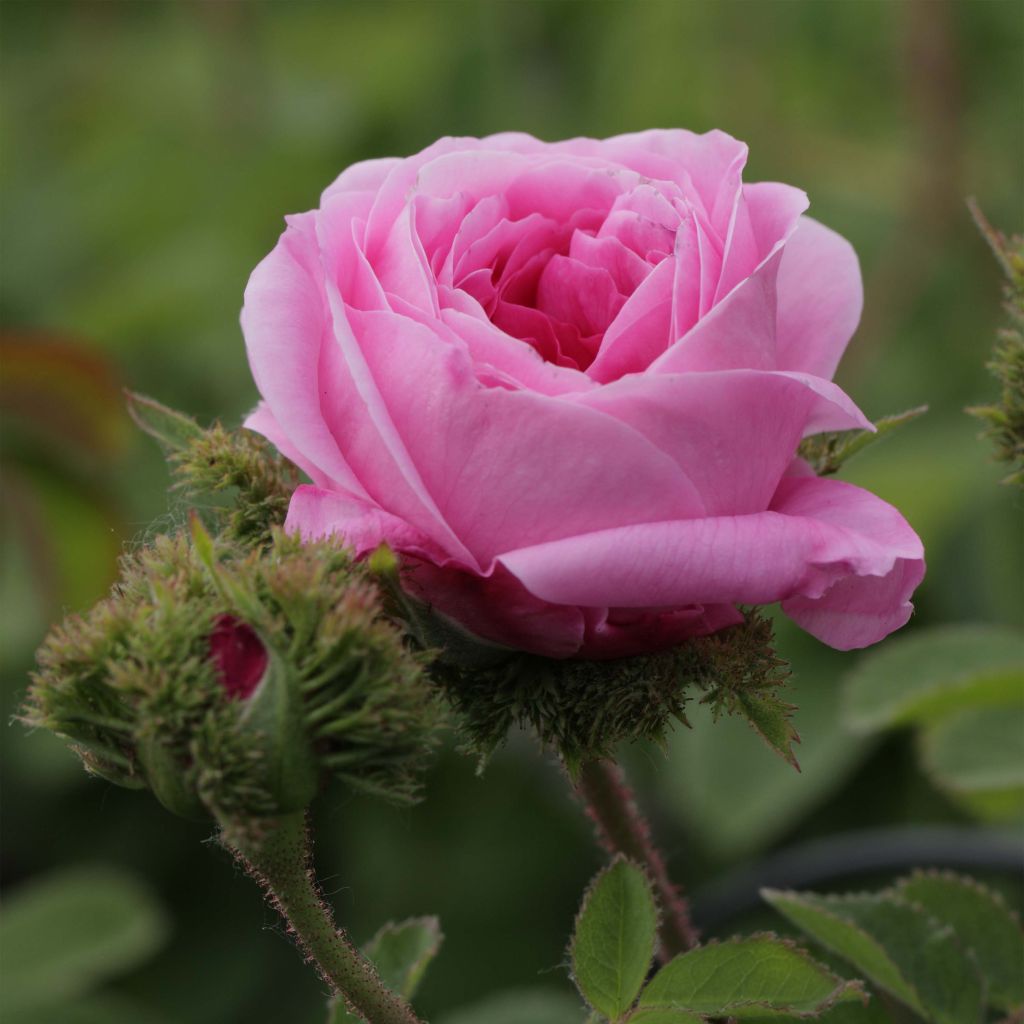

Rosa centifolia Cristata - Crested Moss Rose
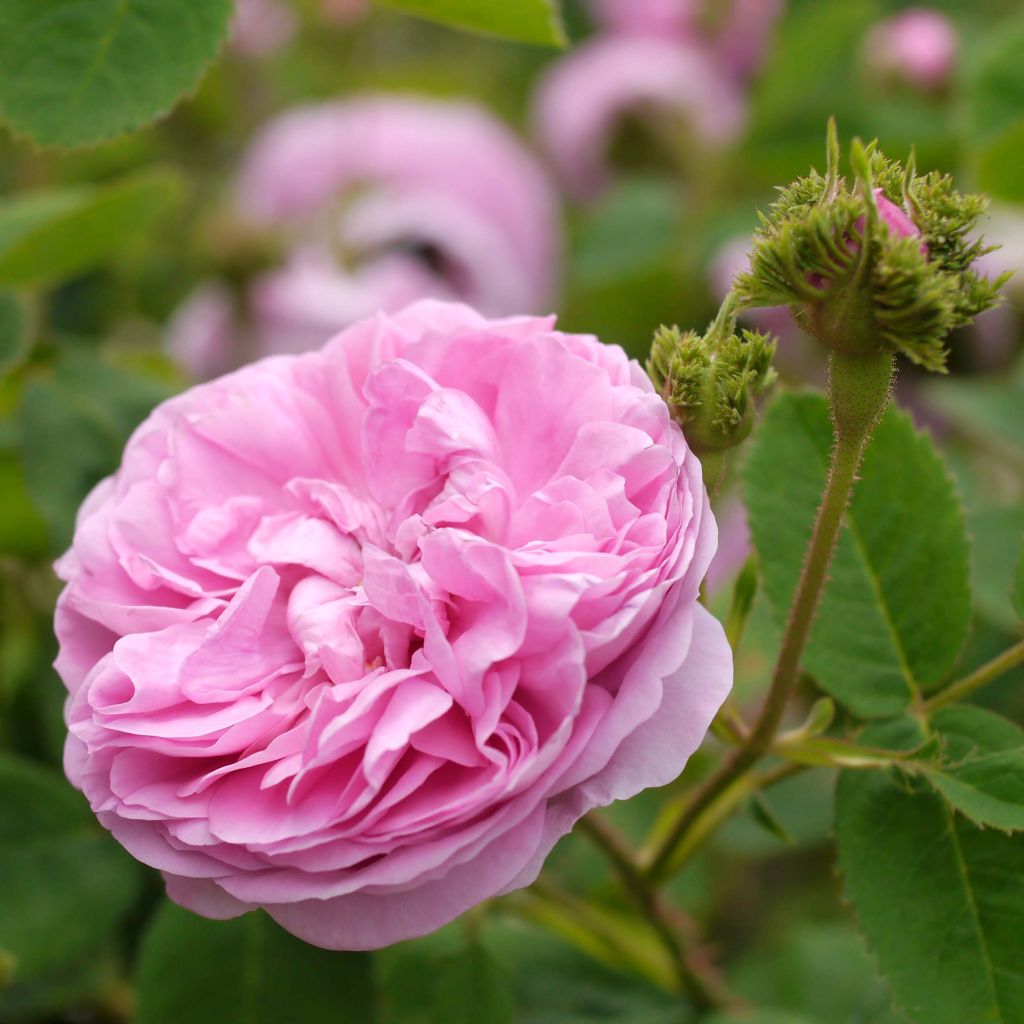

Rosa centifolia Cristata - Crested Moss Rose
Rosa centifolia Cristata - Crested Moss Rose
Rosa centifolia Cristata
Crested Moss Rose
This item cannot be shipped to the selected country
Delivery charge from €5.90
Delivery charge from €5.90
Delivery to Corse prohibited
More information
Schedule delivery date,
and select date in basket
This plant carries a 24 months recovery warranty
More information
We guarantee the quality of our plants for a full growing cycle, and will replace at our expense any plant that fails to recover under normal climatic and planting conditions.
From €5.90 for pickup delivery and €6.90 for home delivery
Express home delivery from €8.90.
From €5.90 for pickup delivery and €6.90 for home delivery
Express home delivery from €8.90.
Delivery to Corse prohibited: UE law prohibits the import of this plant from mainland France to Corse as part of the fight against Xylella fastidiosa. Please accept our sincere apologies.
More information
Does this plant fit my garden?
Set up your Plantfit profile →
Description
The Rose (x) centifolia Cristata is commonly known as the ' Chapeau de Napoleon' Old Rose because of its unique tricorn shape, with buds curiously covered in a frilled green calyx. It is a botanical species that appeared as a simple mutation of the Centifolia Rose, with an unparalleled fragrance and countless petals, which is beautifully called Cabbage Rose, May Rose or Dutch Rose. 'Cristata' forms a somewhat gangly bush with a flexible habit, bearing large-sized roses of a medium-intensity pure pink colour, opening into flattened cups around a bud-shaped eye. Its flowering, in June, exhales a sweet fragrance, both soft and sugary, recognisable among all.
This Cristata hundred-leaf rose should not be confused with the moss rose (Rosa centifolia Muscosa), which is covered in fragrant moss. Cristata' has a green petiole and calyx flanked by casual growths, but lacks its mossy cousin's fragrance. The 'Chapeau de Napoleon' rose, a spontaneous mutation of Rosa centifolia Communis, was discovered in Switzerland in 1827 by a certain Mr. Kirsch, then introduced into the horticultural trade by the Frenchman Vibert.
This rose develops into a slightly loose bush, with a rounded habit, which can reach 1.20m (3 ft 11 in) in height and 1.50m (4 ft 11 in) in width, or even more, as it emits new stems from the base when grown on its own roots. Its stems, very flexible and arching, are green and covered in reddish thorns. They bear, from late spring through May-June depending on the climate, solitary roses, 8-9 cm (3.1 - 3.5 in) in diameter, with 40 petals sometimes arranged in very tight quarters. Their colour is a pure and fresh pink, slightly lighter on the edges, and their fragrance is powerful, perceptible several metres around. The bud, bright pink, is particularly ornamental when emerging from a lovely crown of mossy lace, of spring green. The foliage, greyish green, is composed of leaves divided into 5 to 7 leaflets. It is susceptible to diseases such as black spot and botrytis in humid climates. A plant that benefits from an airy and sunny locations, in drier climates, will be more resistant. The "moss" is sometimes affected by powdery mildew.
While the passion for botanical roses is not generally widespread, it is fully justified, especially in poor soils or under difficult climates: these roses are not only the parents of our modern roses, but also generally more robust and reliable. The 'Chapeau de Napoleon' Rose is neither the most floriferous nor the most vigorous of all, but it is a fascinating, precious and carefree rose, which attracts to the garden with the unique fragrance of its voluptuous roses, cultivated for the perfume industry. It is stunning in a small hedgerow or defensive hedge, leaning against sturdy bushes that will prevent it from leaning too much under the weight of its roses. Because it has style and carries within it a bit of the fantastic adventure of roses... It will ideally be placed in the background of perennial borders that will conceal its slightly bare base and its somewhat sparse foliage. Finally, it is a very hardy shrub, not demanding in terms of soil, which deserves, for the unique fragrance and texture of its cabbage roses, to be placed not far from a pathway.
Report an error about the product description
Rosa centifolia Cristata - Crested Moss Rose in pictures
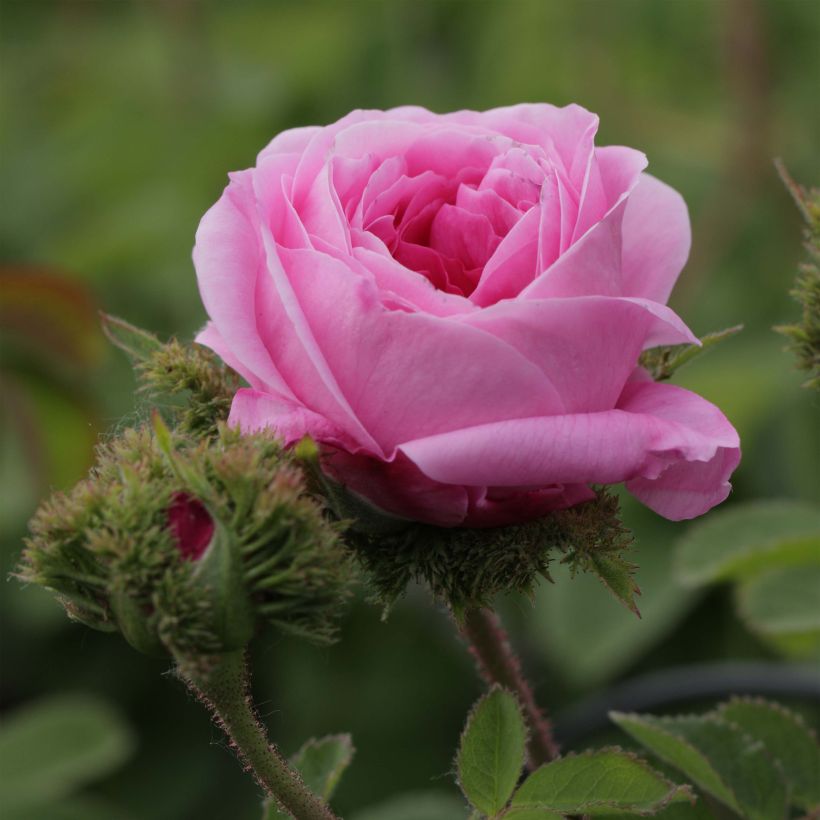

Plant habit
Flowering
Foliage
Botanical data
Rosa
centifolia
Cristata
Rosaceae
Crested Moss Rose
Western Europe
Rosa canina Laxa (4L/5L pot, Wrapped bare root)
Other Traditional Roses
Planting and care
The Cristata hundred-leaf rose thrives in all regions that are not too hot and tolerant to the cold. It adapts to all types of deep soil, even sandy soil, as long as it has been properly planted! Plant it in well-worked and well-drained garden soil, in a sunny or semi-shaded position, which it tolerates very well. To keep it bushy, maintenance is simple: prune after flowering, from late June to late August. Very hardy, this rose can withstand temperatures as low as -20°C (-4°F). It may be useful to remove dead wood in winter and remove faded flowers. If necessary, in spring, after the risk of frost, a light pruning can be done. Sometimes, this variety may need support due to its very flexible branches that bend under the weight of the flowers. It can be affected by blackspot and botrytis in humid climates with poor air circulation.
To plant your rose, whether in a pot or in the ground, prepare your soil to a depth of 25 cm (9.8 in) by breaking up the soil and adding blood, fish and bone to the planting hole. Position your plant, removed from its pot, covering the top of the root ball with 3 cm (1.2 in) of soil, fill in and water copiously to eliminate air pockets. In dry weather, regular watering for a few weeks is necessary to help root growth. Also, remember to provide your rose with rose fertiliser to stimulate plant flowering. To achieve abundant blooming of your roses, regularly bend and tie the branches. Each bend will result in a lateral shoot that ends in a cluster of flowers. Regularly remove faded flowers.
It is common for roses to become stained or unsightly during late summer, but this does not affect their growth. These stains are natural and do not pose any danger to the rose.
Planting period
Intended location
Care
-
, onOrder confirmed
Reply from on Promesse de fleurs
Fragrant Roses
Haven't found what you were looking for?
Hardiness is the lowest winter temperature a plant can endure without suffering serious damage or even dying. However, hardiness is affected by location (a sheltered area, such as a patio), protection (winter cover) and soil type (hardiness is improved by well-drained soil).

Photo Sharing Terms & Conditions
In order to encourage gardeners to interact and share their experiences, Promesse de fleurs offers various media enabling content to be uploaded onto its Site - in particular via the ‘Photo sharing’ module.
The User agrees to refrain from:
- Posting any content that is illegal, prejudicial, insulting, racist, inciteful to hatred, revisionist, contrary to public decency, that infringes on privacy or on the privacy rights of third parties, in particular the publicity rights of persons and goods, intellectual property rights, or the right to privacy.
- Submitting content on behalf of a third party;
- Impersonate the identity of a third party and/or publish any personal information about a third party;
In general, the User undertakes to refrain from any unethical behaviour.
All Content (in particular text, comments, files, images, photos, videos, creative works, etc.), which may be subject to property or intellectual property rights, image or other private rights, shall remain the property of the User, subject to the limited rights granted by the terms of the licence granted by Promesse de fleurs as stated below. Users are at liberty to publish or not to publish such Content on the Site, notably via the ‘Photo Sharing’ facility, and accept that this Content shall be made public and freely accessible, notably on the Internet.
Users further acknowledge, undertake to have ,and guarantee that they hold all necessary rights and permissions to publish such material on the Site, in particular with regard to the legislation in force pertaining to any privacy, property, intellectual property, image, or contractual rights, or rights of any other nature. By publishing such Content on the Site, Users acknowledge accepting full liability as publishers of the Content within the meaning of the law, and grant Promesse de fleurs, free of charge, an inclusive, worldwide licence for the said Content for the entire duration of its publication, including all reproduction, representation, up/downloading, displaying, performing, transmission, and storage rights.
Users also grant permission for their name to be linked to the Content and accept that this link may not always be made available.
By engaging in posting material, Users consent to their Content becoming automatically accessible on the Internet, in particular on other sites and/or blogs and/or web pages of the Promesse de fleurs site, including in particular social pages and the Promesse de fleurs catalogue.
Users may secure the removal of entrusted content free of charge by issuing a simple request via our contact form.
The flowering period indicated on our website applies to countries and regions located in USDA zone 8 (France, the United Kingdom, Ireland, the Netherlands, etc.)
It will vary according to where you live:
- In zones 9 to 10 (Italy, Spain, Greece, etc.), flowering will occur about 2 to 4 weeks earlier.
- In zones 6 to 7 (Germany, Poland, Slovenia, and lower mountainous regions), flowering will be delayed by 2 to 3 weeks.
- In zone 5 (Central Europe, Scandinavia), blooming will be delayed by 3 to 5 weeks.
In temperate climates, pruning of spring-flowering shrubs (forsythia, spireas, etc.) should be done just after flowering.
Pruning of summer-flowering shrubs (Indian Lilac, Perovskia, etc.) can be done in winter or spring.
In cold regions as well as with frost-sensitive plants, avoid pruning too early when severe frosts may still occur.
The planting period indicated on our website applies to countries and regions located in USDA zone 8 (France, United Kingdom, Ireland, Netherlands).
It will vary according to where you live:
- In Mediterranean zones (Marseille, Madrid, Milan, etc.), autumn and winter are the best planting periods.
- In continental zones (Strasbourg, Munich, Vienna, etc.), delay planting by 2 to 3 weeks in spring and bring it forward by 2 to 4 weeks in autumn.
- In mountainous regions (the Alps, Pyrenees, Carpathians, etc.), it is best to plant in late spring (May-June) or late summer (August-September).
The harvesting period indicated on our website applies to countries and regions in USDA zone 8 (France, England, Ireland, the Netherlands).
In colder areas (Scandinavia, Poland, Austria...) fruit and vegetable harvests are likely to be delayed by 3-4 weeks.
In warmer areas (Italy, Spain, Greece, etc.), harvesting will probably take place earlier, depending on weather conditions.
The sowing periods indicated on our website apply to countries and regions within USDA Zone 8 (France, UK, Ireland, Netherlands).
In colder areas (Scandinavia, Poland, Austria...), delay any outdoor sowing by 3-4 weeks, or sow under glass.
In warmer climes (Italy, Spain, Greece, etc.), bring outdoor sowing forward by a few weeks.

































